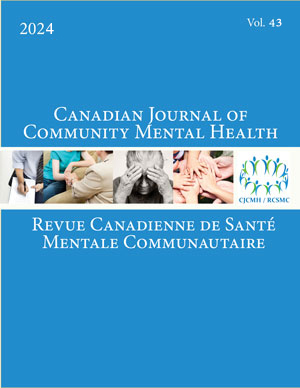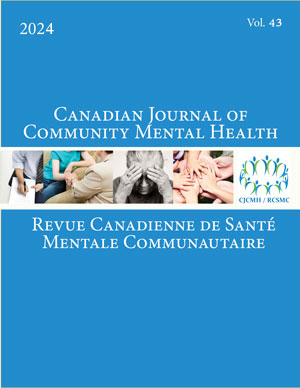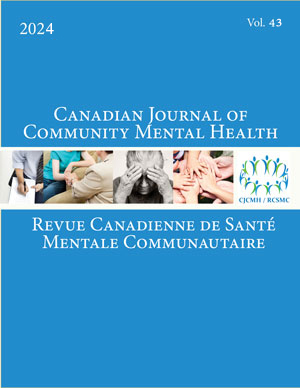Volume 39 • Number 2 • July 2020
Articles
OPEN ACCESS
The Criminal Code of Canada has been amended to allow medical assistance in dying (MAiD) under prescribed criteria. There has been considerable debate regarding whether people with mental illness as the sole underlying medical condition should be eligible. It is argued that access to MAiD is not compatible with recovery-oriented care. Based on a comprehensive analysis exploring the ethical principles guiding decision making around MAiD, this paper offers a discussion of the compatibility between MAiD and recovery-oriented care and demonstrates significant overlap of these principles. The discussion around MAiD as an option in recovery-oriented care is legitimate and needs to continue.
OPEN ACCESS
This article reports the results from 22 interviews regarding the relationship among government structure, service system design, and equity in access to psychotherapy in Australia, the United Kingdom and Canada. Key themes focused on the strong relationship between government structure and at least one other factor in shaping psychotherapy reforms in each country, as well the persistence of inequities despite the introduction of universal reforms. These findings suggest that improving equity in access will require explicit focus regardless of government structure or service system design.
OPEN ACCESS
Evaluation of knowledge mobilization (KM) activities in community-based mental health and social service organizations is needed. Our objective was to understand how service providers want to access and share knowledge, in order to improve KM practices to better support adults with intellectual disabilities. We distributed information about five strategies for supporting friendships; this included strategy descriptions, outcomes of strategy evaluations, and practical implementation considerations. We distributed information through a conference presentation, online presentations, and online modules. Service providers completed questionnaires and phone interviews. We present findings on their perspectives regarding the format and content of the material, which can inform future KM efforts.
OPEN ACCESS
We take a novel approach to estimating the association between housing tenure and youth mental health by considering stability and change in exposure. We categorize youth from age 10–15 into mutually exclusive groups: always rent or own—stable patterns; intermittently rent, or own—changing patterns. We use growth modeling to compare trajectories of aggression and emotional problems among children in families who always or intermittently rent to their counterparts who always own. We observe initial disparities in problems with aggression at age 10–11 between youth who have always lived in rented vs. owned housing that persist over time, resulting in comparable disparities at age 14–15.
Practice Innovations
OPEN ACCESS
To enhance consistency in practicing meaningful engagement to improve services, the Ontario Centre of Excellence for Child and Youth Mental Health co-developed quality standards on system-level youth and family engagement with agency representatives, researchers, youth, and families. These two quality standards encompass statements that describe high-quality engagement based on evidence.
OPEN ACCESS
Stella’s Place created an adapted DBT program, delivered through an integrated peer-clinician approach, to treat young adults with mental health difficulties in a community mental health setting. Evaluation findings revealed significant improvements in participants’ use of coping skills, resiliency, and self-efficacy following their participation in the program.
OPEN ACCESS
The covid-19 pandemic created major challenges for mental health crisis care. Our crisis centre in Winnipeg, Manitoba rapidly virtualized the full spectrum of services offered with remarkable uptake, resulting in avoided hospitalizations and reduced transmission risk for covid-19. We must determine how to best adopt these approaches into post-pandemic crisis care.
OPEN ACCESS
Cet article résume la mise en œuvre d’un projet pilote de formation destiné à promouvoir la santé mentale chez les agriculteurs. Cette initiative destinée tant aux intervenants qu’aux agriculteurs est née d’un partenariat entre un centre de prévention du suicide et le milieu universitaire québécois. On y présente de façon succincte le contexte ayant mené à sa mise sur pied, ses modalités, son appréciation et ses retombées. L’analyse de ce projet pilote met en lumière la pertinence des approches de codéveloppement unissant les agriculteurs, les intervenants et les chercheurs.










